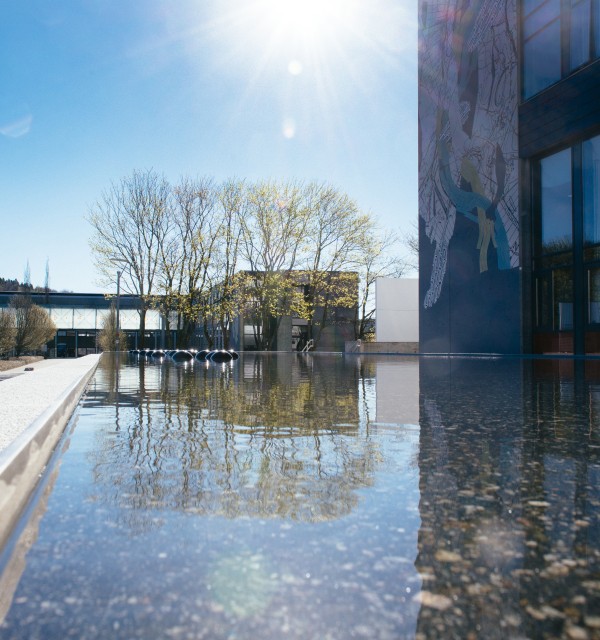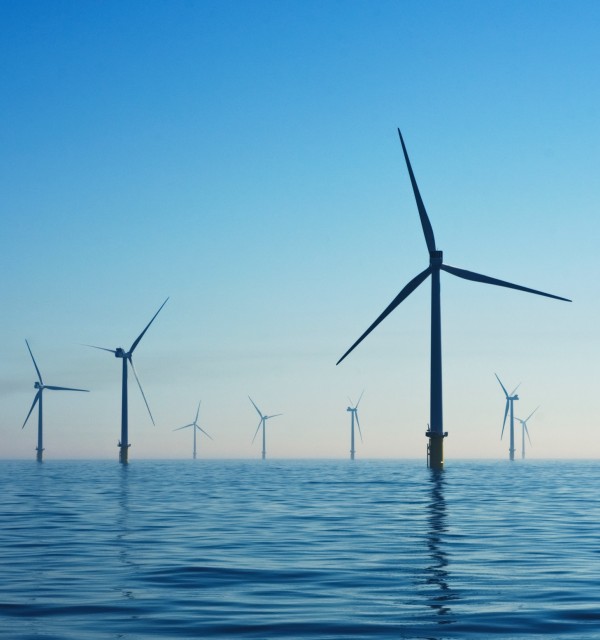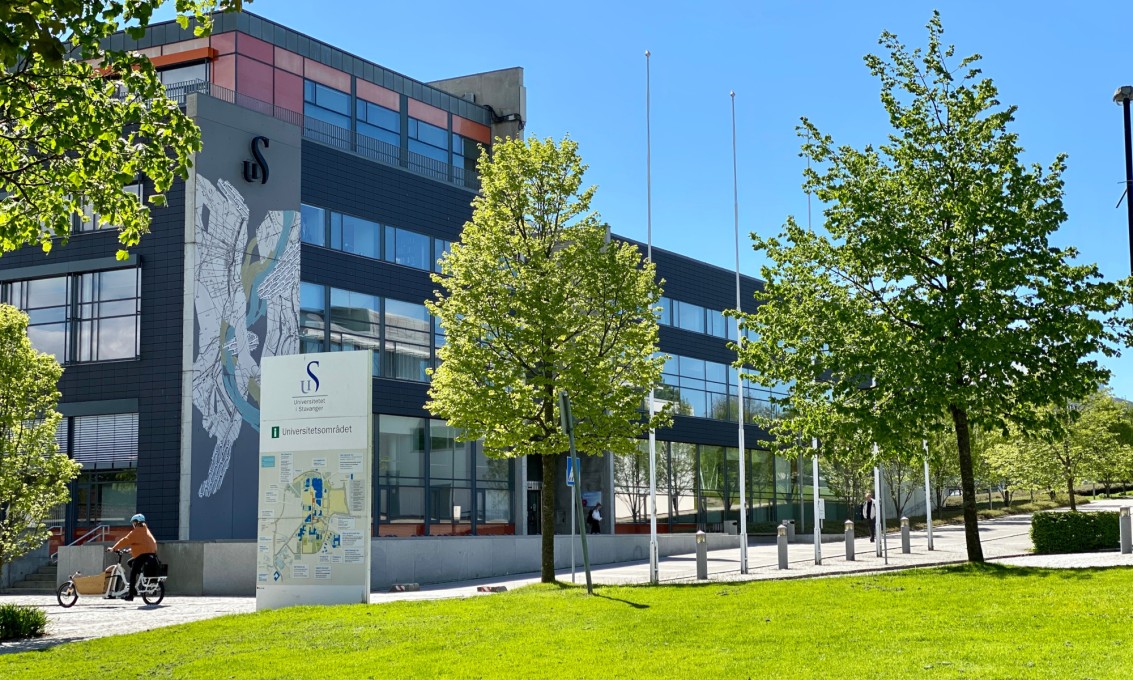PhD Education at the University of Stavanger
The University of Stavanger has five PhD programmes that cover a wide range of disciplines.
5
61
What is a PhD education?
A PhD (Doctor of Philosophy) is the highest level of academic qualification you can achieve. The PhD program is a three-year research education.
The education includes a dissertation or artistic result based on independent work, relevant courses equivalent to six months of study, participation in national and international research environments, academic or artistical dissemination, a trial lecture and a public defence.
The most common way to enrol in a PhD programme is to be employed by the University for a PhD fellowship. It is also possible to apply for admission with other funding.
Pursue a PhD at UiS?
Our PhD programmes
Upcoming courses and events
The research of our PhD candidates
Doctoral candidates and non-academic careers
Saeed Moghadam-Saman defended his PhD at the University of Stavanger 21 May 2021.
Qualification of new partitioning tracers
Mário Helder Lopes da Silva has developed a method for qualification of new partitioning tracers for use in Partitioning...
Meet ph.d student Ingrid
– You are given the opportunity to study risk analysis in one of the most internationally acknowledged research environm...
Temperature variations i chalk reservoirs
Tijana Voake defended her PhD thesis 22 January, and is now ready for new challenges.
Design, Modelling and Analysis of Combined Wind and Wave Energy Systems for Intermediate Water Depths
Chern Fong Lee has conducted research on the numerical modelling of Combined Wind and Wave Energy Systems for Intermedia...
Design optimisation for floating offshore wind turbines
Anja Schnepf defended her PhD-thesis titled "Design optimisation of Power Cable Configurations for Floating Offshore Win...
New methods for characterization of impurities in chalk
Tine Vigdel Bredal has investigated different methods for analyzing chalk at core level and right down to the smallest s...
Numerical modelling of floating docks
Jianan Zhang has performed research on the numerical modelling of the floating docks. On 31 May, she defended her doctor...
Detects cerebral stroke using artificial intelligence
She is a radiologist at Stavanger University Hospital, he is a computer scientist. Now they have teamed up to develop a ...
Advanced methods for field-scale reservoir simulation
Anna Kvashchuk defended her dissertation for the degree of PhD at the University of Stavanger the 30th of April.
Doctoral thesis on how students' mindsets affect learning outcomes
Elin Svensen defended her Ph.D. in sociology, social work, culture, and society at the Faculty of Social Sciences on Dec...
What influences nurses' career choices?
Leaders who support, listen to, and value their staff are extremely important for nurses' ambitions regarding further ca...
Design of autonomous underwater vehicles
Yucong Ma has researched dynamic analysis and design of subsea shuttle tanker systems.
Seismic inversion methods for reservoir characterisation
Nisar Ahmed has developed a workflow for seismic inversion methods to estimate the rock-properties in a reservoir.
Environmental risk assessment of enhanced oil recovery solutions
In his PhD work, Mehul Vora has contributed to new knowledge about the environmental risk related to shortlisted product...
Understanding the initial wettability of reservoirs
Panagiotis Aslanidis defended his thesis on wettability for core analysis. The purpose of his research was to link reser...
Maintenance of ageing structures and mechanical equipment
Fredrik Bjørheim, PhD candidate at the Faculty of Science and Technology, has investigated damage assessment and modelin...
Dissertation on policy instruments for entrepreneurs
Founder and entrepreneur Murshid M. Ali defended his dissertation for the Ph.D. degree in Management, Economics, and Tou...
Integrated solar panels in walls and roofs can be efficient power sources
“Norway’s cold climate is very suitable for building-integrated photovoltaics,” says researcher Hassan Gholami. He compl...
Synthetic polymers for enhanced oil recovery
In her doctoral work, Siv Marie Åsen has taken a closer look at what happens to different types of polymers when they ar...
Doctoral candidates and non-academic careers
Saeed Moghadam-Saman defended his PhD at the University of Stavanger 21 May 2021.
Qualification of new partitioning tracers
Mário Helder Lopes da Silva has developed a method for qualification of new partitioning tracers for use in Partitioning...
Meet ph.d student Ingrid
– You are given the opportunity to study risk analysis in one of the most internationally acknowledged research environm...
Temperature variations i chalk reservoirs
Tijana Voake defended her PhD thesis 22 January, and is now ready for new challenges.
Design, Modelling and Analysis of Combined Wind and Wave Energy Systems for Intermediate Water Depths
Chern Fong Lee has conducted research on the numerical modelling of Combined Wind and Wave Energy Systems for Intermedia...
Design optimisation for floating offshore wind turbines
Anja Schnepf defended her PhD-thesis titled "Design optimisation of Power Cable Configurations for Floating Offshore Win...
New methods for characterization of impurities in chalk
Tine Vigdel Bredal has investigated different methods for analyzing chalk at core level and right down to the smallest s...
Numerical modelling of floating docks
Jianan Zhang has performed research on the numerical modelling of the floating docks. On 31 May, she defended her doctor...
Detects cerebral stroke using artificial intelligence
She is a radiologist at Stavanger University Hospital, he is a computer scientist. Now they have teamed up to develop a ...
Advanced methods for field-scale reservoir simulation
Anna Kvashchuk defended her dissertation for the degree of PhD at the University of Stavanger the 30th of April.
Doctoral thesis on how students' mindsets affect learning outcomes
Elin Svensen defended her Ph.D. in sociology, social work, culture, and society at the Faculty of Social Sciences on Dec...
What influences nurses' career choices?
Leaders who support, listen to, and value their staff are extremely important for nurses' ambitions regarding further ca...
Design of autonomous underwater vehicles
Yucong Ma has researched dynamic analysis and design of subsea shuttle tanker systems.
Seismic inversion methods for reservoir characterisation
Nisar Ahmed has developed a workflow for seismic inversion methods to estimate the rock-properties in a reservoir.
Environmental risk assessment of enhanced oil recovery solutions
In his PhD work, Mehul Vora has contributed to new knowledge about the environmental risk related to shortlisted product...
Understanding the initial wettability of reservoirs
Panagiotis Aslanidis defended his thesis on wettability for core analysis. The purpose of his research was to link reser...
Maintenance of ageing structures and mechanical equipment
Fredrik Bjørheim, PhD candidate at the Faculty of Science and Technology, has investigated damage assessment and modelin...
Dissertation on policy instruments for entrepreneurs
Founder and entrepreneur Murshid M. Ali defended his dissertation for the Ph.D. degree in Management, Economics, and Tou...
Integrated solar panels in walls and roofs can be efficient power sources
“Norway’s cold climate is very suitable for building-integrated photovoltaics,” says researcher Hassan Gholami. He compl...
Synthetic polymers for enhanced oil recovery
In her doctoral work, Siv Marie Åsen has taken a closer look at what happens to different types of polymers when they ar...
Doctoral candidates and non-academic careers
Saeed Moghadam-Saman defended his PhD at the University of Stavanger 21 May 2021.
Qualification of new partitioning tracers
Mário Helder Lopes da Silva has developed a method for qualification of new partitioning tracers for use in Partitioning...
Meet ph.d student Ingrid
– You are given the opportunity to study risk analysis in one of the most internationally acknowledged research environm...
























